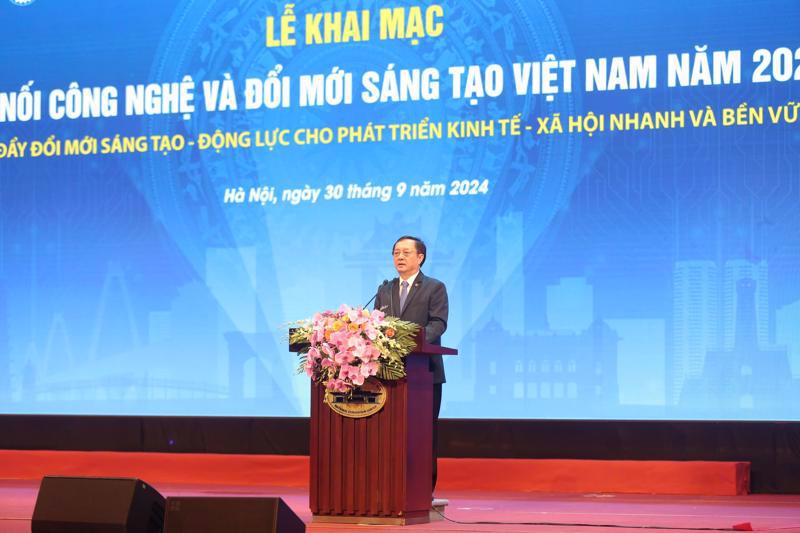Minister of Science and Technology Huynh Thanh Dat has emphasized the crucial role of science, technology, and innovation in driving productivity, sustainable growth, and competitiveness, especially in key areas such as industry, agriculture, construction, healthcare and education.
The minister made these remarks at the Techconnect and Innovation Vietnam 2024 , held in Hanoi on September 30, which highlighted innovation promotion as an impetus for fast and sustainable socio-economic development.
He noted that technological application, transfer, and innovation are essential for enhancing productivity, quality, and competitiveness.
Vietnam's socioeconomic development strategy for 2021-2030 positions science, technology, and innovation as foundational elements for rapid and sustainable development.
In recent years, Vietnam's economic growth has gradually shifted away from natural resources and towards the application of science and technology.
According to the Global Innovation Index (GII) report released by the World Intellectual Property Organization (WIPO) in 2024, Vietnam is currently ranked 44th out of 133 countries.
The Global Competitiveness Index (GCI) report by the World Economic Forum ranked Vietnam 67th in 2023, demonstrating significant progress. Notably, Vietnam's macroeconomic stability and innovation capability have been highly rated.
By 2030, Vietnam aims to be in the top 50 for GCI and top 40 for GII, solidifying its position on the global technology map.
To promote more effective technological application, transfer, and innovation, Minister Dat outlined four key tasks:
First, to improve linkages and unity in the strategic vision for developing the innovation system, with businesses playing a central role, universities and research institutes as strong research entities, and promoting the socialization of investment resources for science and technology.
Second, to focus on implementing support solutions to encourage businesses to enhance their technology absorption capacity and promote technology innovation activities, considering this as a core solution for each enterprise, sector, and the entire economy.
Third, to develop a synchronous, effective, and integrated science and technology market, enhance connections between producers, businesses, localities, and research units, and mobilize resources to support technological application, transfer, and innovation.
Fourth, to build and perfect the legal system for science, technology, and innovation, ensuring the goal of reforming administrative procedures, forming a favorable legal environment, removing obstacles, and creating favorable conditions for organizations and individuals involved in scientific and technological activities.









 Google translate
Google translate